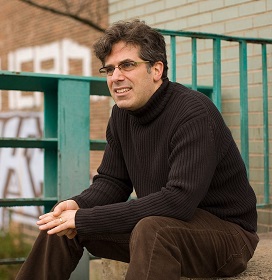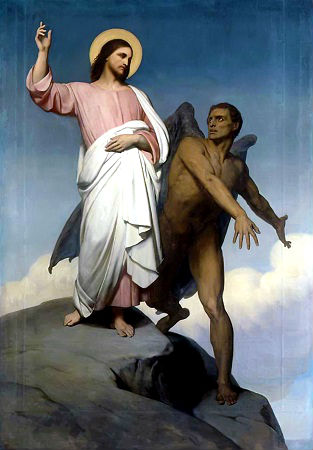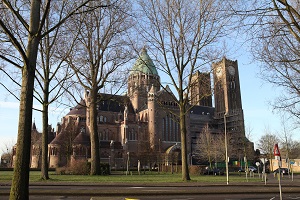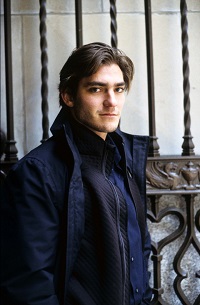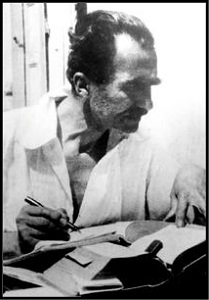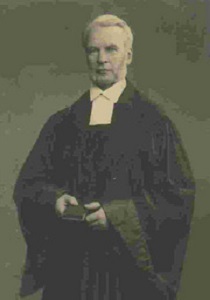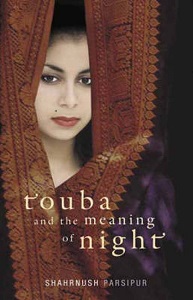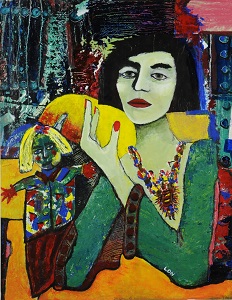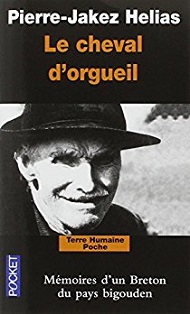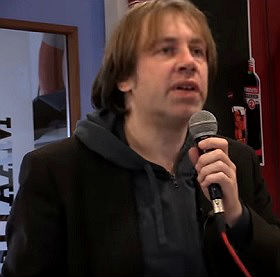De Nederlandse schrijver Michiel Stroink werd geboren in Oss op 19 februari 1981. Zie ook alle tags voor Michiel Stroink op dit blog.
Uit: De notaris en het meisje
“Voor Anna was het de vijfde keer dat ze het begrafenisritueel aanschouwde. Bij de vorige processie mocht ze voor het eerst met de vrouwen meelopen. Ze droeg toen een zwarte overrok die ze bij iedere stap tot aan haar enkels de kleigrond in trapte. Nu zat ze gehurkt achter de kruiwagen met het zware gevoel in haar keel en kon ze zich niet eens meer voorstellen hoe licht het leven was toen ze met de kinderen mee mocht huppelen, achter de bellen en de fakkels aan.
De stoet trok langs het ondiep en zou nog eenmaal in de richting van het dorp komen voor hij afboog naar het droogveld. De dikke mist die over het laagland dreef, leek er altijd te zijn als er dingen gebeurden die God niet mocht zien. Nu zorgde Hij ervoor dat Anna alleen de kop, het midden en de staart van de meanderende rouwstoet zag.
‘Het lijkt op een aal.’ De krassende mannenstem kwam van achteren, naast de schuur. ‘Hij kronkelt het moeras in.’ De man was niet van het laagland. Hij droeg een zwarte overjas over een donker pak, en onder de hoed die tot aan zijn wenkbrauwen over zijn voorhoofd was getrokken, staarden twee kraalogen haar onafgebroken aan. Onder zijn linkeroog liep een litteken, als een traan, langs zijn neus tot aan zijn mondhoek.
Het duurde even voor Anna de man vanuit hurkzit durfde aan te spreken.
‘Wie bent u, meneer? Bent u soms familie?’ Anna stond op en wilde een stap naar achteren zetten, maar stootte tegen de kruiwagen aan.
‘Je bent mooi. Geen kleikop, je hebt een fijn gezicht. Hoe oud ben je, meisje?’
‘Ik ben zeventien, bijna achttien. Ik heet Anna. Wie bent u?’
De glimlach van de man drukte het litteken schuin omhoog.
‘Bijna achttien, toe maar. Waar zijn je ouders, meisje?’
‘Mijn vader en moeder lopen mee. Ze lopen naar het droogveld.
Ze zijn pas rond de middag weer terug.’
‘Werkt je vader aan het veen of op het veld?’
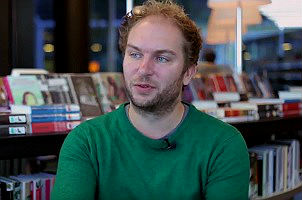
Michiel Stroink (Oss, 19 februari 1981)

